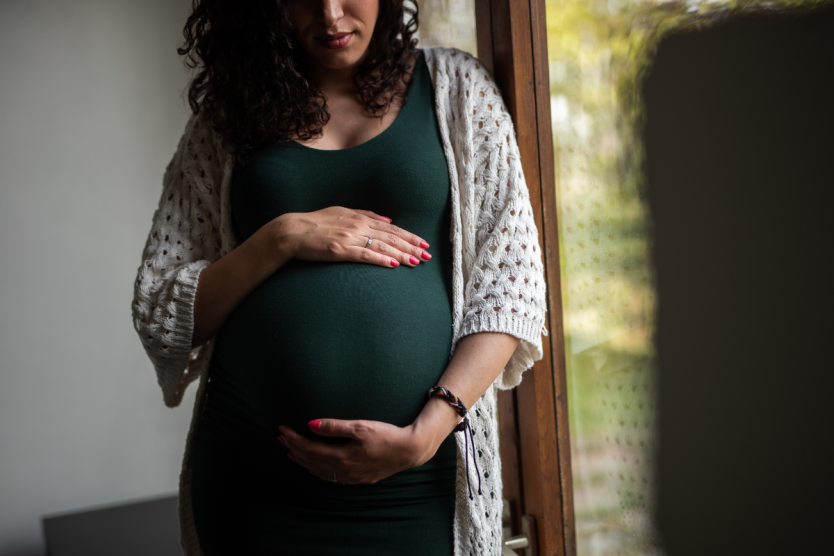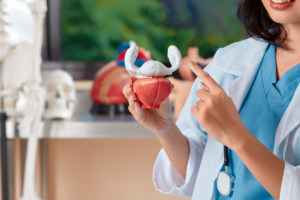If you’re excited about starting a family, then finding out you have uterine fibroids may dampen that excitement.
As you learn about fibroids and the implications, your first question is likely can you get pregnant with fibroids? Let’s explore this common condition and what it means for starting or extending your family.
It’s OK to Have Fibroids
If you have just found out you have one or several uterine fibroids, you’re not alone. These are the most common pelvic tumors among women of reproductive age, affecting more than 70% of women worldwide.1 In fact, some women don’t even know they have fibroids, as they lack any symptoms.
You shouldn’t worry about cancer either, as they are not associated with an increased risk of uterine cancer, and almost never develop into cancer. Rather, fibroids, which often appear during childbearing years, are noncancerous growths of the uterus that can range in size from as small as seeds to bulky masses that can distort and enlarge the uterus. You can have a single fibroid or multiple ones.2
There are different risk factors associated with developing fibroids, and possible causes for their growth. The typical symptoms include heavy menstrual bleeding or periods lasting more than a week; pelvic pressure or pain; and frequent urination or difficulty emptying the bladder.2
Can You Get Pregnant With Fibroids?
Learning you have a tumor in your uterus will of course raise concerns about getting pregnant and having a healthy pregnancy. It is possible to get pregnant with fibroids. However, some types of fibroids may have an impact on fertility.
For example, a fibroid that bulges into the center of your uterus may make it more difficult for a fertilized embryo to implant into the lining of the uterus.3 The same is true if the fibroid is growing on the inner uterine wall.4
As well, fibroids can block sperm from reaching and fertilizing one of your eggs. If you do become pregnant, fibroids may impact development if they are located in a spot where your baby should be growing.4
The vast majority of women with fibroids can get pregnant and deliver a healthy baby. There could be complications, partly because fibroids tend to grow during pregnancy, due to the influx of estrogen and progesterone that occurs when a woman is pregnant. But not all fibroids will get larger or cause problems, and sometimes they grow during the first part of pregnancy then shrink by the postpartum period.5
Because symptoms and outcomes are not the same for every woman, it’s best to see a doctor if you have fibroids and you want to get pregnant, or you are pregnant. Depending on your situation, different treatment options are available. It’s important to explore those options to preserve your ability to become pregnant.2
Seek Diagnosis
If you suspect you have uterine fibroids, use our Physician Finder to find a doctor near you with expertise in women’s health, who can provide diagnosis and treatment. In particular, if you have pelvic pain that doesn’t go away, overly heavy, prolonged or painful periods, or spotting or bleeding between periods, or severe vaginal bleeding or sharp pelvic pain that comes on suddenly, seek immediate medical care.2 And if you’re having trouble getting pregnant, it’s important to see a doctor and explore if there are other possible causes of infertility before determining that fibroids are the main reason.3
















